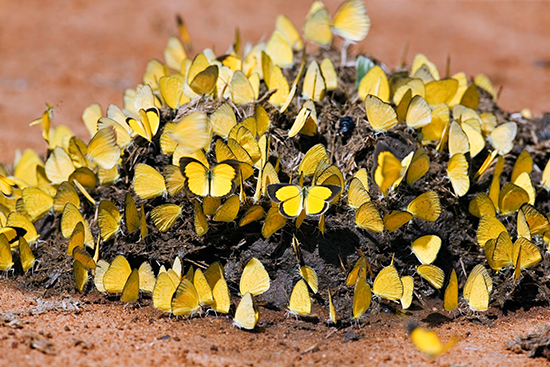Modes of Transit in the Necropastoral Instructor: Joyelle McSweeneyProgram: Transdisciplinary StudiesCredit(s): 1Date: August 4th, 11th, 18th, 25thTime: 14:00-16:30 ET

DESCRIPTION: This four-session Seminar will entail a collaborative investigation of the subterranean precincts and possibilities of the Necropastoral. The Necropastoral designates a way of thinking about both ecology and aesthetics that eats away at categories like cause and effect, past and future, human and inhuman, living and dead. Instead, the Necropastoral propagates an eco-aesthetic zone which is decadent, inverted, unfit and too-much, posthumous and profligate, anachronistic and undermining, expectorating an uneven array of ill-founded and spectacular effects.
As we collectively transit through the Necropastoral, we will read lyric works in translation and consider the katabatic terrains and ecologies thus entailed; experience the distending and relieving shifts in pressure created by transit through genres and languages; encounter plural, extremophile, and hybrid lifeforms and subjectivities; palpate novel topographies with our increasingly acute sensory appendages; assimilate botanical/avian/angelic ecologies of
language,, and consider translation’s impossibility as a novel model of (posthumous) survival.
Session 1.
Wild Grass on the Riverbank by Hiromi Ito, tr. by Jeffrey Angles.
Part katabasis, part naturalist journal, this landmark in contemporary Japanese poetry follows a group of migrant children who might be moving through the California desert or might be playing on a riverbank in Japan or might be wild grass on that riverbank or might in fact be dead. The work flexes between Japanese English, botanical terms, proper names, children’s rhymes, puns, and a lengthy sample of Neil Young resounding through the landscape. Wild Grass will be our introduction to the Necropastoral, as we consider the way this text ,in its plurality propagates an infernal ecology and establishes translation and migrancy as signal activities in the Necropastoral.
Session 2.
With Deer by Aase Berg and Angelgreen Sacrament by Eva Kristina Olsen, both translated by Johannes Göransson.
These works of contemporary Swedish surrealism will allow us to further study the way textual ecologies can propagate hybrid species and host conflict and events, whether between humans, animals and environment (With Dear) or between human, angel, insect, and language (Angelgreen). Translation will serve as a nexus for considering language as a human artifact and as the site of recombination, pain, and metamorphosis.
Session 3.
Phantom Pain Wings by Kim Hyesoon translated by Don Mee Choi, and excerpts from Emergency by Edgar Garcia.
With Phantom Pain Wings, by contemporary Korean master poet Kim Hyesoon, we will consider the overlapping issues of bird language, shamanism, and cosmic transit, as well as the ways these themes and possibilities are occluded or extended by translation into English by Kim’s close collaborator, the artist-poet Don Mee Choi. We will send these lines of lightless flight outwards into the critical regions designated in Emergency by scholar-poet Edgar Garcia, which contrasts the godly, the avian, and the human in the context of the Popul Vuh and critical Mayan darkness;
Session 4.
Notebook of a Return to the Native Land by Aimé Césaire tr. Clayton Eshleman.
We will conclude our transit with an anachronistic arrival at Martinican Surrealist Aimé Césaire’s 1939 Notebook, considering how its dream botanies, climatology, geology, and ecologies of repetition and motif entail an eruption of futurity through the split beak of omenology and contradiction. We will also estimate what we have learned about the limitations and possibilities of translation as a means of subterranean transit and the relationship of translation to impossible utterance.
IMAGE: Nigel Pavitt, Butterflies Eating Elephant Dung, 2016.
To see The New Centre Refund Policy CLICK HERE.
To see The New Centre Refund Policy CLICK HERE.